In 1968, multi-instrumentalist Rusty Young co-founded the pioneering country rock band Poco along with Richie Furay and Jim Messina, who he met when he was asked to add pedal steel guitar to Furay’s signature song “Kind Woman” in the waning days of the great Buffalo Springfield. He is Poco’s only continuous member over the band’s illustrious career and two dozen albums, and wrote their biggest hit “Crazy Love”.
This interview was for the 9/13/15 concert at the Lobero Theatre in Santa Barbara billed as Jim Messina with special guest Poco’s Rusty Young “Sittin’ In”. It was done by phone on 8/31/15.
Other Poco-related interviews:
Jeff Moehlis: Hi Rusty! Is this a good time for the interview?
Rusty Young: Interviews? I don’t do no stinking interviews!
JM: [laughs] Let’s start with kind of a generic question – what can people look forward to at the upcoming concert?
RY: Yeah, really, I love that question. Oh, a lot of Elvis covers, actually. I’m going to do “Love Me Tender”… [JM laughs]
What you can expect is the interplay between musicians that are all really, really talented people. I don’t do a lot of shows with Jimmy [Messina]. Jimmy’s a really, really old friend. Well, he’s not old, but the friendship is old. He’d kill me if I said he was really old.
You know, it’s a chance for really, really great musicians who have known each other for a long time to have interplay, to be able to play back and forth. And we only do it a couple of times a year because we both have things going on. You know, I’ve got Poco and other solo things I’m doing, that kind of stuff, and he has all the stuff that he does, which is a ton of stuff. So it’s a rare chance for the two of us to renew our friendship and to play music together, something we’ve been doing since 1968.
JM: When and where did you guys first meet each other?
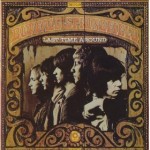
RY: We met when Richie [Furay] called me. Jimmy was producing the Last Time Around record by the Buffalo Springfield. They were working on a song by Richie Furay, and Richie decided he wanted steel guitar on it. And a friend of mine who worked with him said, “I know who you should call.” So I was living in Colorado and got the call, “Would you like to come out and play pedal steel on a Buffalo Springfield record?” And I loved the Springfield, and I said, “Sure, I’d love to do that.” So I flew out and played on a song called “Kind Woman”.
That was actually the beginning of Poco, because Springfield was dissolved really at that time, and Jimmy and Richie wanted to keep playing music. The three of us just hit it off – we had similar backgrounds and interests, and we loved the notion of mixing country and rock ‘n’ roll music together. So that was the beginning of Poco. That’s when I first met Jimmy, that first day when I flew into Los Angeles and went to the studio and put pedal steel on “Kind Woman”.
JM: Did you go back to Colorado then, or did you decide to stick around L.A.?
RY: I had lots of stuff in Colorado. I was playing in the big local band in Colorado. You know, I lived there, I had stuff there. I was set to take over running a music store there, and I thought that was really where I was headed.
So I went back to Colorado and sold everything I owned, including my precious Corvette, and moved out to Los Angeles so that we could fill the band up. We needed a bass player and a drummer, so I went out there when we looked for that. You know, I’d known Randy Meisner, who you may know from the Eagles, I’d known Randy since high school. We’d played in different bands in Colorado, and I always wanted to work with him. So I gave Randy a call. And then George Grantham, our drummer, came from the band that I was in in Colorado. So we added Randy and George, and that was the beginning of Poco.
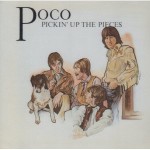
JM: So when you guys started, what was the initial vision for the band?
RY: Well, we wanted to do things that other people weren’t doing at the time, and that was country rock. It’s really hard to believe, but back then there weren’t synthesizers, so if you wanted to bring in an outside-sounding instrument, not just piano, bass, drums, and guitar, you had to actually play it. And so, it turns out, I play banjo and mandolin and dobro and steel guitar and guitar, all those country instruments I grew up learning how to play.
So I fit in because I was the color guy. I could add all these different colors to the really great songs that Richie Furay wrote, and Jimmy’s guitar playing fit in perfectly. He had that kind of Bakersfield sound guitar that Mark Knopfler stole later on. So it was a neat perfect fit, and we just wanted to meld together Richie’s kind of Buffalo Springfield rock ‘n’ roll with country instruments. And country instruments not playing country, but playing music, just playing things that maybe another instrument would play, but this time they’re played on a country instrument. It was an interesting notion, and a lot of people really liked it, like Gram Parsons.
JM: Did you hang out at all with Gram back then?
RY: Gram actually auditioned to be in the band. We played with Gram for a few months, but it didn’t really work out. There were just some issues that couldn’t be resolved with Gram. And he got the offer to join The Byrds, and The Byrds already had a record contract so they could go right in and cut an album, and we were still negotiating, trying to get a record deal. So it enabled him to go into the studio before we ever got the chance to, and exercise that kind of notion that he’d been kicking around with us.
JM: My understanding is that back in Poco’s early days, the band was sometimes viewed by some as too country for rock, and too rock for country. What’s your take on that description?
RY: I don’t get that. I don’t get it at all. I mean, The Eagles were country rock, and that didn’t stop them any. I think that can be an excuse. I think we just didn’t have the material that fit the marketplace. I know that others disagree with me, but I don’t think we had a “Peaceful Easy Feeling” or a “Take It Easy” kind of song that fit radio.
That was really the birth of FM radio, right about them. Our material fit FM radio really, really well. You know, the second album had an 18 minute long song on it. That never fit AM radio, but it fit FM very well. I think we were an FM band, where other bands like The Eagles were AM bands. I don’t think our material really was suited for pop two-minute hit song radio. You know, Firefall… there were other country rock bands that had lots of success on AM radio.
So I think it’s kind of a cop out. I think we just didn’t deliver what we needed to deliver for that kind of radio.
JM: But you did have longevity, which is saying something, right?
RY: Yeah, we did. You know, why that happened is because there’s always been really talented people in the band. When Randy Meisner left, Timothy B. Schmit joined. When Jim Messina left to do Loggins & Messina, Paul Cotton joined. So there’s always been really great players, and up to this day we’ve really been able to score the cream of the crop as far as players for our band. So the band’s always been really good, and it’s always been really creative. It’s ironic that ten years after we started the band we had our first Gold Album, and our first hit single “Crazy Love” was Number One on Billboard for like six weeks. That all happened when the band was just me and Paul Cotton, when Jimmy had left and Richie had left and Timothy had left and George had left and Randy had left. But it was the right song at the right time, and it was a radio song. I think it’s been good work over the years, that people like to come here.
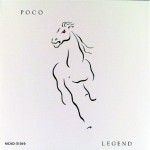
JM: I do want to ask you about “Crazy Love”, because that’s one of your songs. How did that particular song come together?
RY: You know, you talk to other writers and it rarely happens. It was just a gift. It took 20 minutes to write. I was living in Los Angeles and I was doing some work around the house, and that melody [sings] “It happens all the time”, I just heard that melody. Then it was really easy to finish. I went over and picked up the guitar, and it couldn’t have been more than a half hour later and the song was done.
The funny thing is at the end of the chorus it goes, [sings] “Ooh-ooh, crazy love / Ahh ha”, when I played it for the guys I said, “Don’t worry, I’ll put words there.” They went, “Oh no, don’t do that, don’t do that!” It was just a gift. I just got really lucky. I wish it happened more often.
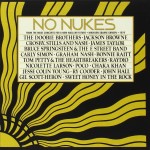
JM: Poco took part in the No Nukes concerts. What was that experience like?
RY: It was a lot of fun. I really enjoyed it. Yeah, Madison Square Garden. Bruce Springsteen, it was his birthday, and he was just starting to be noticed. Paul and I sat in the second row, and watched that show. It was just great. It was really something to see and be part of. James Taylor I’ve always loved, and Jackson Browne. I think Stephen Stills and David Crosby were there. A lot of great musicians. Springsteen did longer, but most everyone would do three or four songs, and it was just a really good quick snapshot of each of those artists. You know, Bonnie Raitt. It was a really fun experience. I enjoyed it a lot. And to be involved in a project with all those kinds of names and to make a record with those giants was very cool.
JM: What advice would you give to an aspiring musician?
RY: That’s a tough one, because I think it’s more difficult today in some ways, and it’s easier today in other ways. You can record a great sounding album in your bedroom, where back in the old days we were beholden to record companies because they would fund the thing, and then take all the money. In a typical record deal they got 90% of the money. Everything that you did was charged to the 10% that was yours. That’s why they have those big tall buildings that say “CBS” on them.
So anyway, people today are so clever with how to use media and the internet. think that’s a great advantage and a great tool, and I wish I knew how to do that [laughs]. At the same time, it’s harder because there’s so much competition, and there’s so much going on. Everyone can get heard.
So, my advice is “go for it!” [laughs] That’s the best I can do.
JM: What are your plans, musical or otherwise, for the near future?
RY: I have two projects that I’m working on. I still do Poco shows, a few here and there, just because it’s fun and I love the guys in the band.
I’ve been offered a solo recording deal, so I’m working on my first solo record. After 47 years, everyone that’s been in the band has done several solo records, and I never have. So at this late date it’s my chance to do a record by myself, which I’m really looking forward to. I spent the summer writing songs for that album, which I’ll start recording after the first of the year.
And I also have a book with all my little stories about Gram Parsons and Elton John, who was an opening act, and Peter Frampton and Janis Joplin and Jimi Hendrix, all of these acts that we played with back in the 70’s before there was security and stuff like that. Neil Young. So I’m writing all these backstage stories that I experienced in that era. It’s almost finished. I’m trying to finish up that book.
So I’ve got a CD project and a book that I’m working on. Then I get to do fun things. I’m doing shows with Jimmy, I’m doing some shows with Paul and Richie, and I’m doing a few Poco shows. Busy, busy bee.
JM: Sounds cool. When you’ve been writing your book and reflecting on your life, has there been anything that surprised you or that you learned about yourself that you wouldn’t have otherwise?
RY: Oh, there were lots of things. There were lots of superstars that people idolized that weren’t exactly idolization material [laughs]. I’m going to walk that line in the book, I guess, because I’m going to tell the truth about some of the people I was around, who people idolize these days but weren’t exactly role models, I didn’t think.
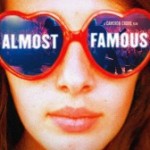
One of the things about it, too, is that it’s so weird the people that you meet… Like in the beginning, Cameron Crowe would hang around. I really never thought much about it, and I never really thought that this guy would become the giant that he is. There were a few people like that who were around, and I wasn’t mean to them or anything, but I kind of just didn’t pay attention to them as I should have. But there was so much going on at that time, and who’s to think that this young kid like Cameron was going to turn into who he turned into. There were a few people like that that, if I had it to do over again, I would’ve paid a little more attention, because they’re really talented people and it was a talented world. The one thing that I would say is watch out for those people. Because there’ll be people around that you don’t think much about, and they’ll turn out to just blow your mind in the end. So that was a lesson I learned.
JM: One last question. I read about this band you were in back in Denver, Boenzee Cryque, and it sounds really cool. Can you tell me a little bit about that band?
RY: It was a local band that was real popular, and they asked me to join at one point. I’d been playing country music, and I always wanted to play rock ‘n’ roll. Of course The Beatles hit and I was a huge Beatles fan, and I love Buddy Holly and all that. So a chance to get out of country bars and play in a rock ‘n’ roll band was an opportunity I jumped at. And the band Boenzee Cryque was named after a hardware store in Denver where we rehearsed upstairs. That’s where they got the name. We had a big hit with a song from The Beau Brummels, a song called “Still In Love With You Baby”. We record it and it was huge in Colorado in that area, but never broke out nationally. It was right at the end of that that I got the call to go out to California and play on the Buffalo Springfield record, and of course history for me changed dramatically.

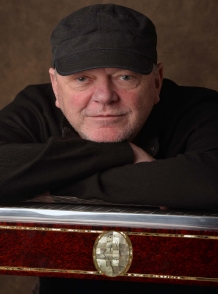
Discussion
No comments for “Interview: Rusty Young”